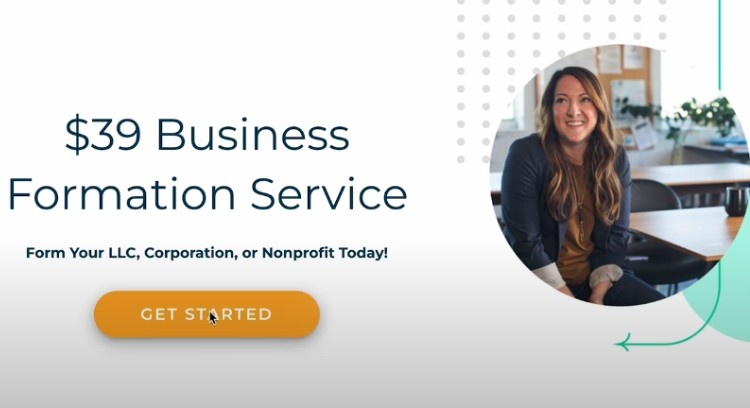Selling on Shopify does not mandatorily require you to form an LLC. You can launch today as a sole proprietor, link your personal tax ID, and start collecting orders.
That setup stays legal and simple while you test products and traffic. Yet, as you grow, risks rise, including chargebacks, customer claims, and inventory disasters. At that point, forming an LLC becomes a practical option.
It shields your personal assets, adds credibility, and opens new tax options. So, you only need an LLC on Shopify once your store grows enough to protect your business.
A Quick Answer: Do You Need An LLC To Sell On Shopify?
Shopify never forces you to form an LLC. You can open a store today as a sole proprietor by entering your legal name and tax ID. Still, once revenue or risk increases, an LLC becomes a smart, extra layer of protection. It protects personal assets, facilitates ownership changes, and fosters valuable buyer trust.
Steps To Start An LLC On Shopify
Starting an LLC for your Shopify store requires simple steps: choose a name, file with your state, get an EIN, open accounts, and add licenses. It protects assets and simplifies taxes.
Step 1: Choose an LLC name – Check state rules and ensure your name ends with “LLC” or “Limited Liability Company.”

Step 2: Appoint a Registered Agent – Select someone to receive legal mail, such as yourself, a member, or a service.
Step 3: Obtain an EIN – Apply online through the IRS; required for tax, banking, and hiring purposes.
Step 4: Create an operating agreement – Detail member roles, profit shares, and what happens if someone leaves.
Step 5: File articles of organization – Submit paperwork to your state and pay the formation fee.
Step 6: Open a business bank account – Separate business finances using your EIN and formation documents.
Step 7: Get licenses and permits – Check state and local requirements, plus any Shopify sales-tax permits.
Along with this, also learn to set up the affiliate program on Shopify if you are new to the platform and unaware of the process.
Basic Requirements For Selling On Shopify
Shopify makes starting an online store simple and accessible, helping businesses succeed in their respective domains. You only need to complete these basic steps:

- Create Your Shopify Account:
Sign up for a Shopify plan that matches your business needs. Shopify offers different pricing tiers, from basic plans for new sellers to advanced options for established businesses.
- Choose Your Domain Name:
Select a memorable domain name that represents your brand. You can purchase a domain directly through Shopify or connect an existing domain to your store.
- Set Up Your Store:
Customize your store design, add products, and configure payment and shipping options. Shopify provides themes and tools to help you create a professional-looking store without technical expertise.
- Meet Legal Requirements:
Obtain any necessary business licenses and permits based on your location and product type. This may include sales tax permits and industry-specific certifications.
What Happens When You Start Without An LLC?
Know what happens if you start your store without an LLC beforehand.
You operate as a Sole Proprietor
Without forming an LLC, you automatically become a sole proprietor. This means your business and personal finances remain legally connected, with no separation between your personal assets and business operations.
Personal Liability Exposure
Your personal assets, including your home, car, and savings accounts, become vulnerable to business-related lawsuits or debts. If someone sues your business or if you face financial difficulties, creditors can target your personal belongings.
Simple Tax Structure
As a sole proprietor, you report business income and expenses on your tax return. This simplifies tax filing, but also means you pay self-employment taxes on all business profits.
Other Legal And Tax Duties Beyond The LLC
Even with an LLC in place, you must handle other legal and tax duties. First, register for a sales‑tax permit in each state where you meet their rule, usually when you store goods, have employees, or hit a sales threshold.
You must collect taxes at checkout and file returns on time (monthly, quarterly, or yearly), depending on volume, to avoid penalties.
Next, file income tax based on your business structure. Single‑member LLCs report on personal returns, while multi‑member LLCs or corporations need separate returns.
Don’t skip quarterly estimated payments if you expect to owe over $1,000; this covers income and self‑employment tax and keeps auditors away.
Check for local business licenses or zoning permits required in your city or county. At last, review state franchise or gross‑receipts taxes.
Tax Implications: LLC vs Sole Proprietorship
Check out the tax implications of both LLC and Sole Proprietorship. Also, go through the Shopify pricing plans, which will help you select the best subscription type for your business.
1. Self-Employment Tax Considerations
Both sole proprietors and LLC members typically pay self-employment taxes on business profits. However, LLCs that elect S corporation taxation can potentially reduce these taxes through salary and distribution strategies.
2. Deduction
Both structures allow you to deduct legitimate business expenses, including home office costs, business travel, equipment purchases, and professional services.
3. Filing Requirements
Sole proprietors report business income on Schedule C of their tax returns. LLCs have more flexibility in how they file taxes, depending on their chosen tax election.
Potential Drawbacks of Forming an LLC
Do not spend too much initially if you have just started with the business. If you still did not understand the process, you can always hire a Shopify expert, but know their costs beforehand.
- Initial Formation Costs – States charge filing fees ranging from $50 to several hundred dollars to form an LLC. These upfront costs can add up, especially for new businesses operating on tight budgets.
- Ongoing Compliance Requirements – Many states require LLCs to file annual reports and pay yearly fees. These ongoing obligations create additional administrative tasks and expenses for business owners.
- Additional Paperwork and Record-Keeping – LLCs require more detailed documentation than sole proprietorships. You need to maintain proper business records, separate business and personal finances, and potentially draft operating agreements.
When Should You Consider Forming An LLC?
If you plan to expand your product line, hire employees, or scale your operations significantly, an LLC provides the structure and protection needed for growth.
Businesses selling products that could potentially cause harm or face frequent returns and disputes benefit from the liability protection an LLC offers.
Investors typically prefer working with formally structured businesses. An LLC makes your business more attractive to potential investors and partners.
Once your business starts generating substantial income, the tax benefits and asset protection of an LLC often outweigh the formation and maintenance costs.
Additional Read: Check out how you can connect Shopify to Instagram with or without filing an LLC.
Conclusion: You Do Not Need An LLC To Start Selling On Shopify
Shopify lets you launch a store without forming an LLC, but the moment sales or liability worries grow, an LLC earns its keep. You can always form an LLC later as your business grows and your needs change.
The structure protects personal assets, opens doors to tax planning, and adds polish to your brand. The key is understanding the trade-offs between simplicity and protection.
Go for a structure that best fits your current business situation. However, a small up‑front effort can save most of the protection worries while running a store on Shopify.
FAQs
The IRS issues an EIN for free, and Shopify’s payment partners often request it.
It allows you to choose S-corp status, which can lower self-employment tax; settings remain the same within Shopify.
Most states charge $50–$800 for annual reports plus any franchise taxes.
File formation papers, get a new EIN, and update Shopify and bank records.

